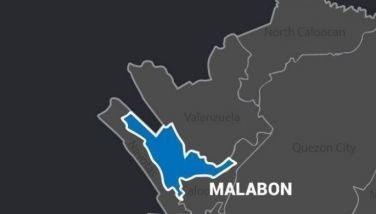US defense secretary to visit Philippines amid troops' access talks
MANILA, Philippines - United States (US) Defense Secretary Chuck Hagel will visit the Philippines this month amid the ongoing negotiations on the increased rotational presence of American troops in the country.
In a statement, the US Defense Department said Hagel’s trip to the Philippines would cap his nine-day trip to Southeast Asia.
The US Defense chief will visit the country from August 29 to 30. The statement did not provide information about Hagel’s itinerary in the
Philippines, Washington’s oldest ally in Asia.
The Philippine Defense department could not provide any information about Hagel’s agenda as of Tuesda.
Hagel’s trip comes as Manila and Washington are discussing an agreement granting American troops greater access to Philippine military facilities.
Negotiations started in the Philippines last Augusg 14 and will continue in the US later this month.
The Philippines and the US have adopted a policy of increased rotational presence as China firms up it grip over disputed areas in the West Philippine Sea (South China Sea).
China has been sending ships around disputed areas in the West Philippine Sea, triggering concerns about its impact on freedom of navigation in the busy sea lane.
The Philippine negotiating panel is led by Foreign Affairs Assistant Secretary Carlos Sorreta and is composed of Defense Undersecretary Pio Lorenzo Batino, Justice Undersecretary Francisco Baraan III and Defense Assistant Secretary Raymund Quilop.
The US panel is led by State Department senior negotiator for military agreements Eric John and composed of State Department Attorney Advisor Elizabeth Jones, Brig. Gen. Joaquin Malavet, and Capt. Greg Bart.
“We are steadfastly for peace but we are ready to tap any resource and call on any alliance to do what is necessary to defend what is ours,†Foreign Affairs Secretary Albert del Rosario said before the start of the negotiations.
The policy on increased rotational presence has drawn criticisms from militant groups who believe that this would violate Philippine sovereignty. Critics also claimed that an access agreement would just reduce the Philippines into a giant weapons depot of the US.
Officials, however, have given assurance that the agreement would strictly adhere to the Philippine constitution and laws.
They also claimed that the discussions would be guided by the principles of Philippine sovereignty, non-permanence of US troops in Philippine territory, non-exclusivity of use of facilities by the US side, and mutuality of benefits.
Members of the Philippine panel said they would push for joint activities aimed at boosting maritime security and disaster response capabilities.
The agreement, which will be on top of the Mutual Defense Treaty of 1951 and the Visiting Forces Agreement, is expected to set parameters for activities that can be undertaken by the two countries.
- Latest
- Trending































